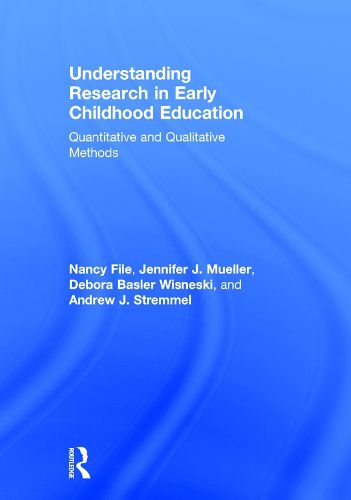Readings Newsletter
Become a Readings Member to make your shopping experience even easier.
Sign in or sign up for free!
You’re not far away from qualifying for FREE standard shipping within Australia
You’ve qualified for FREE standard shipping within Australia
The cart is loading…






Understanding Research in Early Childhood Education: Quantitative and Qualitative Methods prepares readers to be informed consumers of early childhood research. Rather than following the traditional format of covering quantitative and qualitative methods separately, this innovative textbook offers side-by-side coverage and comparison about the assumptions, questions, purposes and methods for each, offering unique perspectives for understanding young children and early care and education programs.
Understanding Research in Early Childhood Education is broadly based across the major research paradigms, and numerous examples are offered throughout the text. Through the use of this book, students will be able to more knowledgeably read, evaluate, and use empirical literature. These skills are becoming more important as early childhood educators are increasingly expected to use evidence-based research in practice and to participate in collecting and analyzing data to inform their teaching.
$9.00 standard shipping within Australia
FREE standard shipping within Australia for orders over $100.00
Express & International shipping calculated at checkout
Stock availability can be subject to change without notice. We recommend calling the shop or contacting our online team to check availability of low stock items. Please see our Shopping Online page for more details.
Understanding Research in Early Childhood Education: Quantitative and Qualitative Methods prepares readers to be informed consumers of early childhood research. Rather than following the traditional format of covering quantitative and qualitative methods separately, this innovative textbook offers side-by-side coverage and comparison about the assumptions, questions, purposes and methods for each, offering unique perspectives for understanding young children and early care and education programs.
Understanding Research in Early Childhood Education is broadly based across the major research paradigms, and numerous examples are offered throughout the text. Through the use of this book, students will be able to more knowledgeably read, evaluate, and use empirical literature. These skills are becoming more important as early childhood educators are increasingly expected to use evidence-based research in practice and to participate in collecting and analyzing data to inform their teaching.